GRIPPING AGRIPPINA
For a political comedy littered with slapstick, it’s fittingly ironic that this newest Met Opera take on Agrippina opens and bookends with morbidity: All the main players are perched on tombs bearing their names.
This adaptation of Théâtre Royal de la Monnaie’s production occurs during the tricentennial of George Frideric Handel’s music and Vincenzo Grimani’s libretto — ripped as it is from the pages of Roman history. Sir David McVicar’s modernized Agrippina follows the exploits of the eponymous empress who plots to install her son Nerone onto her husband’s throne, here represented by a chair atop a monumental golden staircase. However, she learns that her husband, Emperor Claudio, has appointed army commander Ottone as his successor. To reinstall her offspring as heir, Agrippina exploits a love triangle drama involving the temptress Poppea.
On John Macfarlane’s unfussy but glossy set suggesting shadows of original Roman framework, every conspirator and pawn has their chance to shine. Mezzo-soprano Joyce DiDonato is a delightful hand-rubbing schemer, while mezzo-soprano Kate Lindsey steals the show with her swagger and youthful slouch as Nerone, enacting the funniest number of the night when the humiliated son smothers himself with buttloads of cocaine. Highlights include soprano Brenda Rae as a frazzled Poppea going on a post-betrayal breakdown, ripping up her love letters and eating her feelings out. A triumphantly hysterical scene is Ottone looking forward to his throne ascension with a marching dance, choreographed by Andrew George; flanked by two backup dancers, the military man parcels out mock-machismo maneuvers leading to both a hysterical and heartbreaking gag when the boys abandon him at his lowest point. Countertenor Iestyn Davies offers an endearing wide-eyed tenderness to the role. Bass Matthew Rose is compelling as the no-nonsense Claudio.
The opera was written to satirize the ambitions of politicians, portraying titans like Claudio as buffoons. Forgoing the appearance of antiquity, this production scatters some familiar contemporary tropes, such as the media capturing Nerone’s disingenuous do-gooding for the poor, and a Trump-esque ruler image when Claudio dons a golf tracksuit (costumes also by Macfarlane). Does McVicar’s modernized makeover give the court intrigue of Agrippina anything visceral to say about our era? Not much. It would seem a less restrained production would better flesh out how civilians feel about their rulers.
Still, McVicar tactfully hints at a crumbling mythic veneer through the image of Claudio sitting alone outside of his social circle as if exhausted of the court intrigues: A painted canvas of a wolf — healthy in Act I and bloodied to close Act II — now resurfaces as a greyed carcass during a celebratory chipper finale. Once the tombs reemerge and the conspirators and pawns have to return to their mortal slumber, the audience understands that for all the scheming shenanigans and egos of the greats, time will end their reign. The joke’s on them; now, they’re immortalized as pawns for our pleasure.
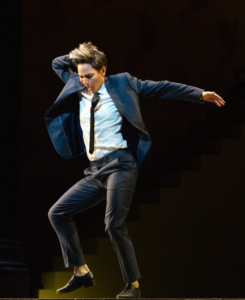 photos by Marty Sohl and Ken Howard
photos by Marty Sohl and Ken Howard
Agrippina
The Metropolitan Opera
30 Lincoln Center Plaza
ends on March 7, 2020
for tickets, call 212.362.2000
or visit The Met
also screens LIVE IN HD
Saturday, February 29, 2020
encore on Wednesday, March 4, 2020
run time: 4 hours 10 minutes
for tickets, visit Fathom
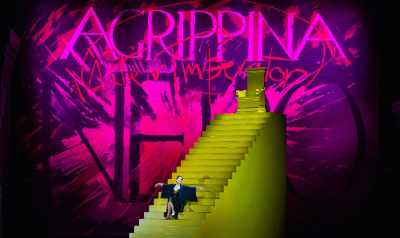
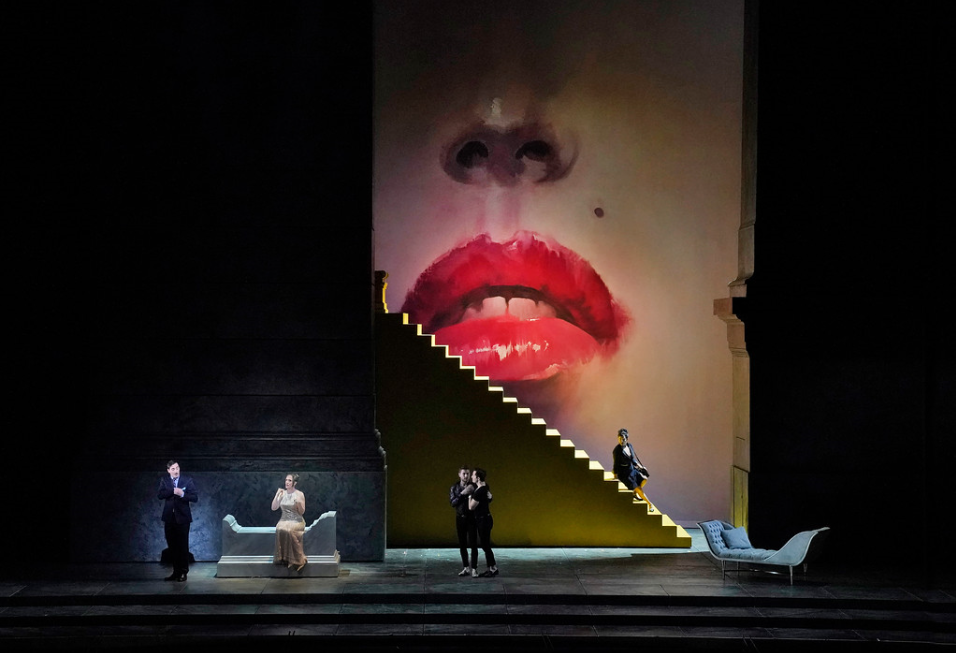
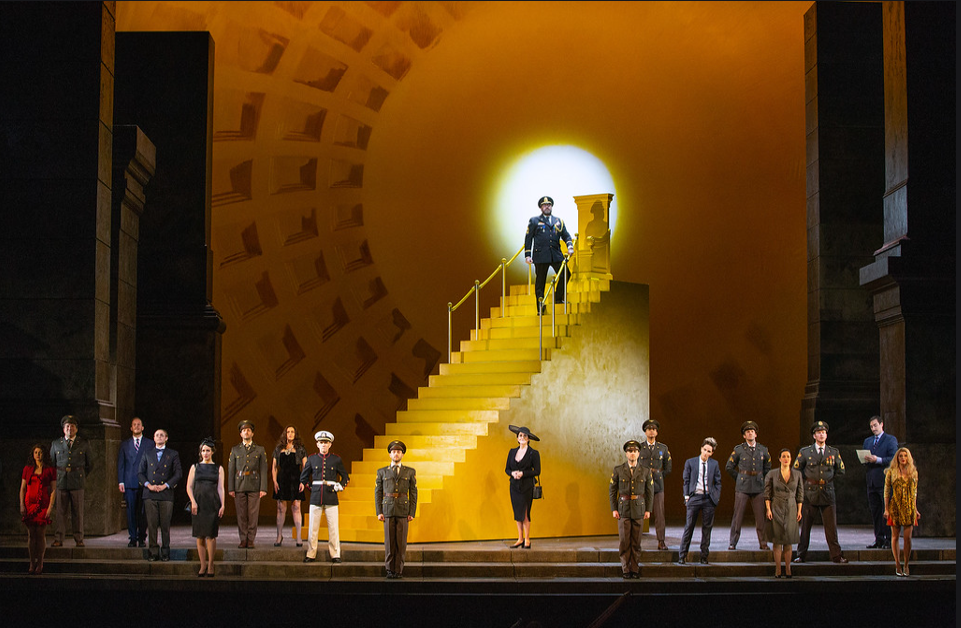
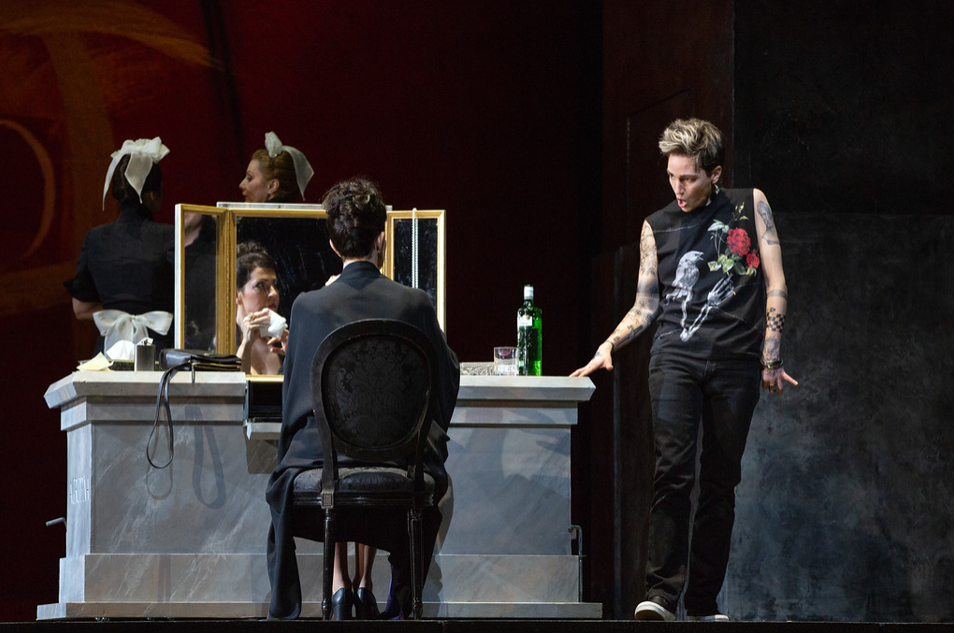
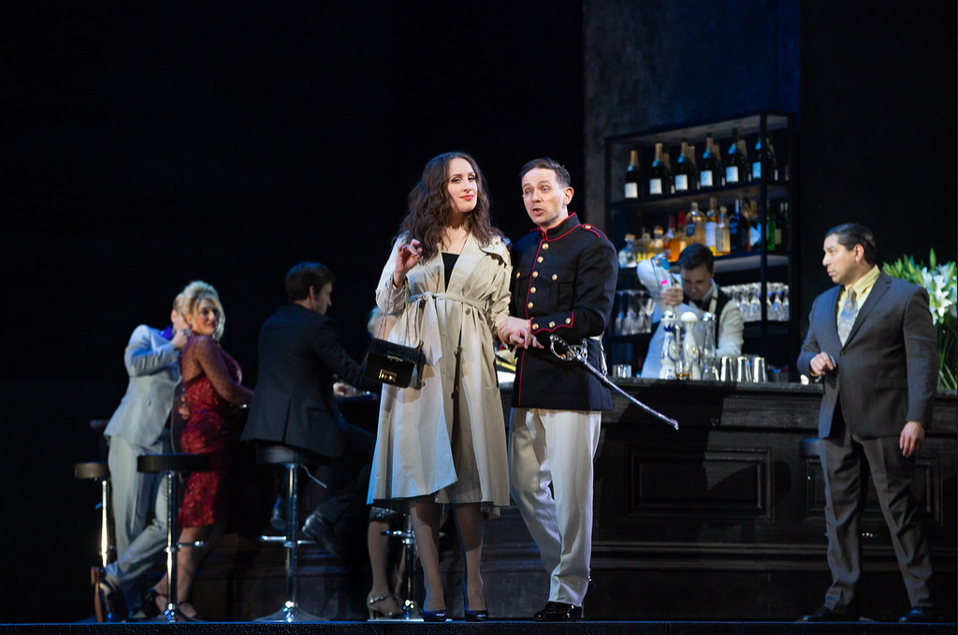
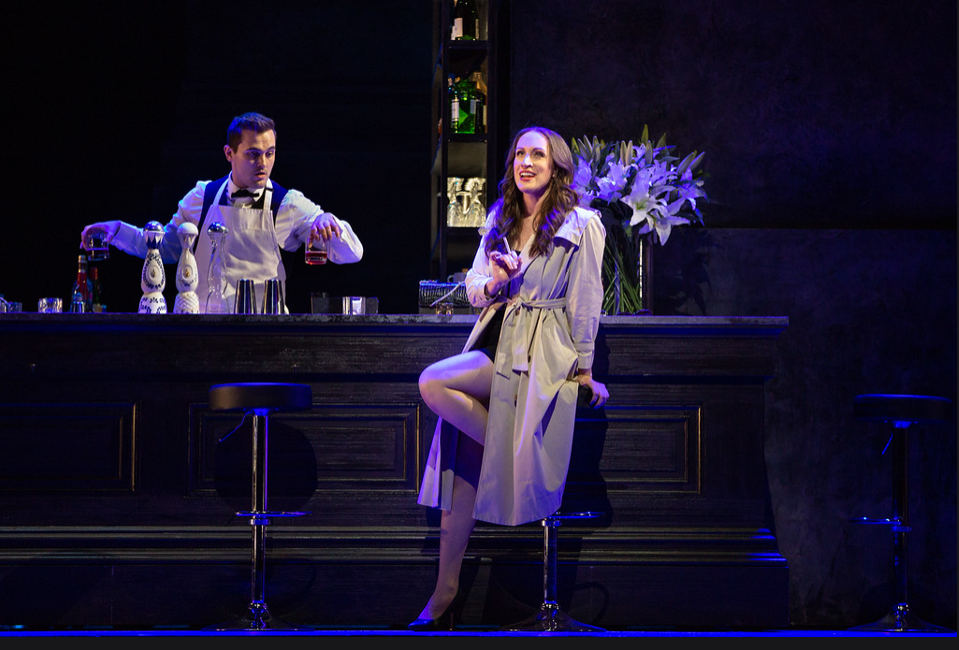
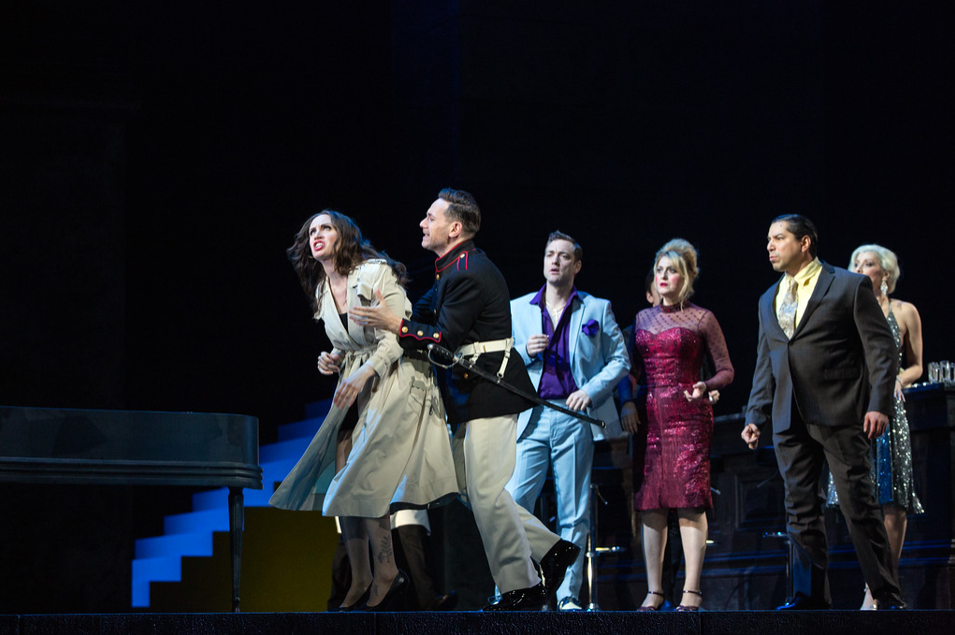
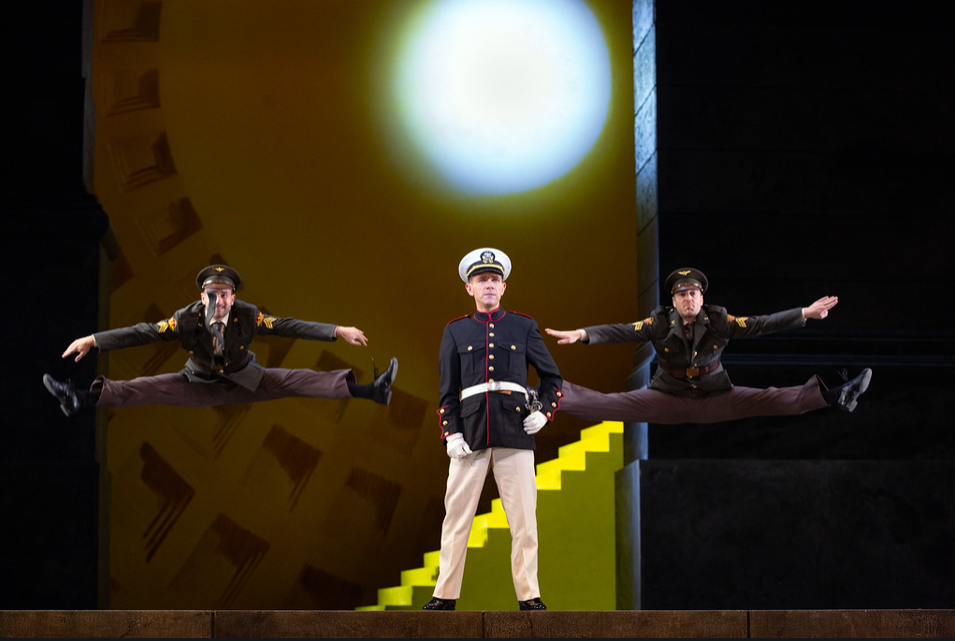
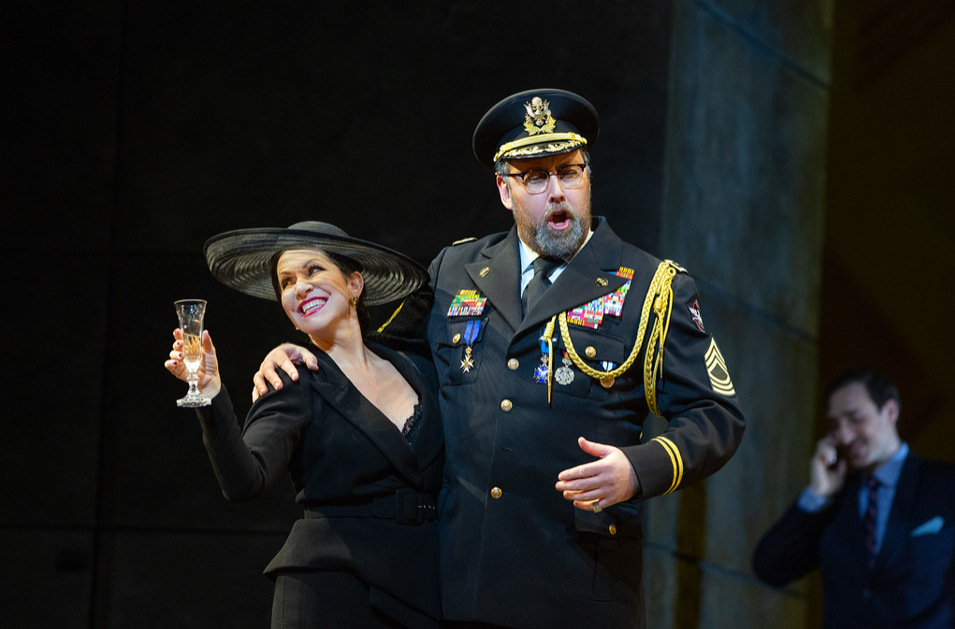
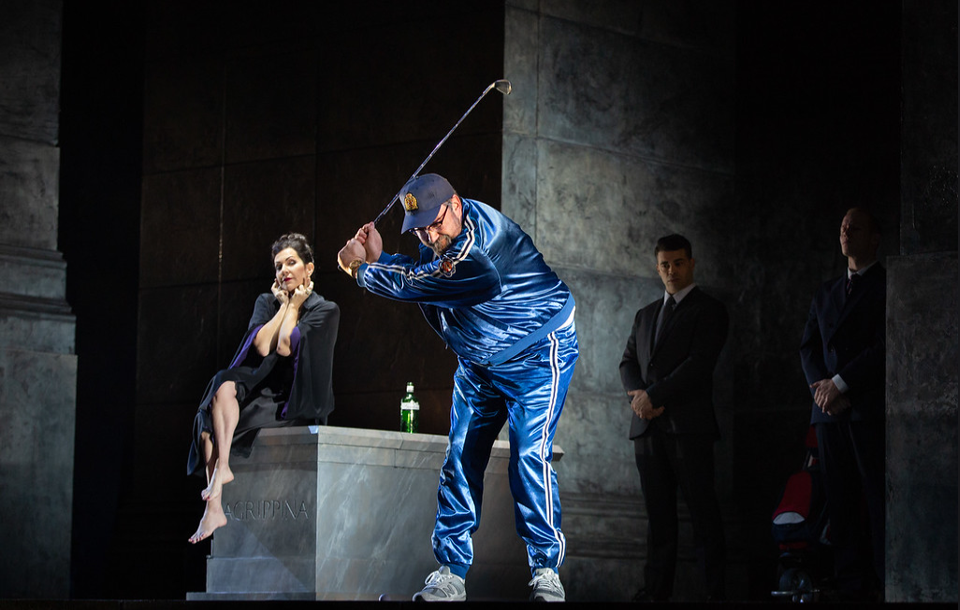
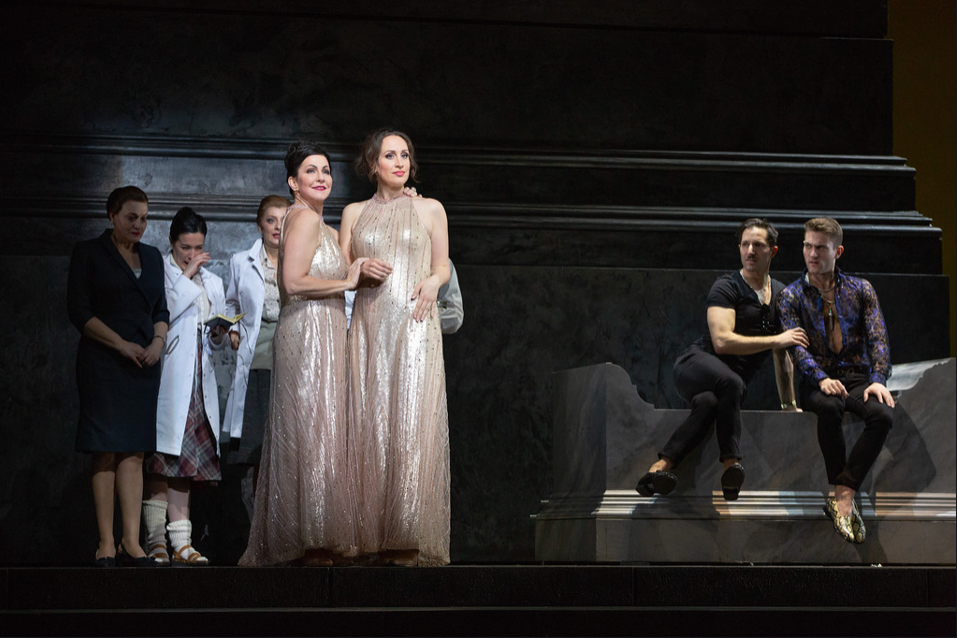
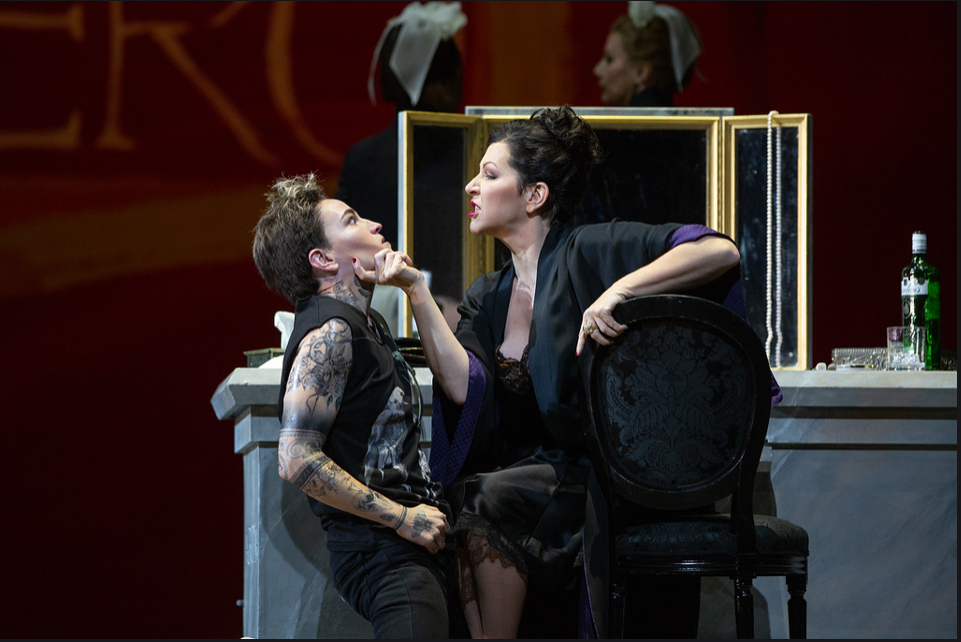
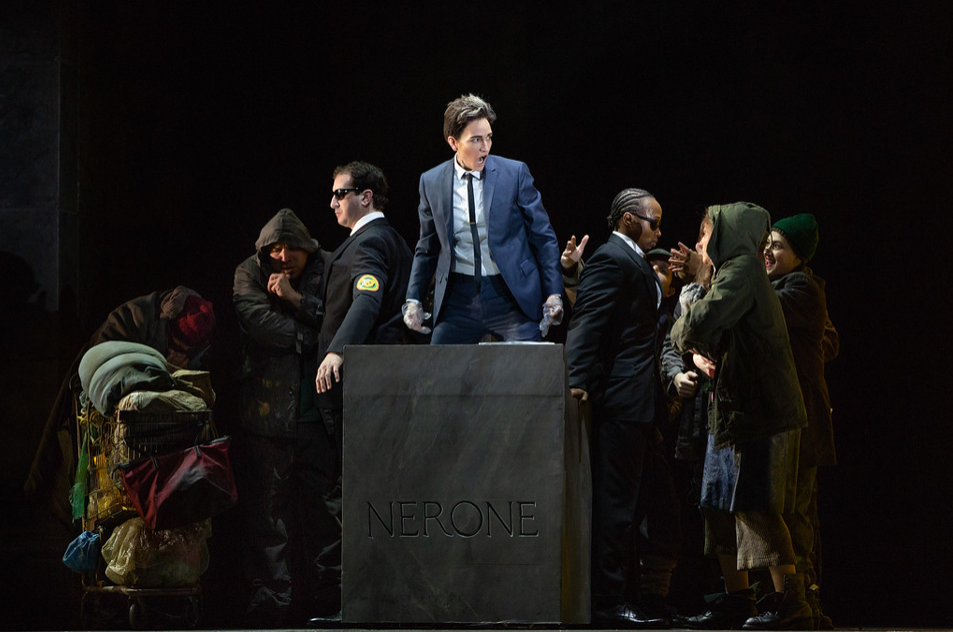
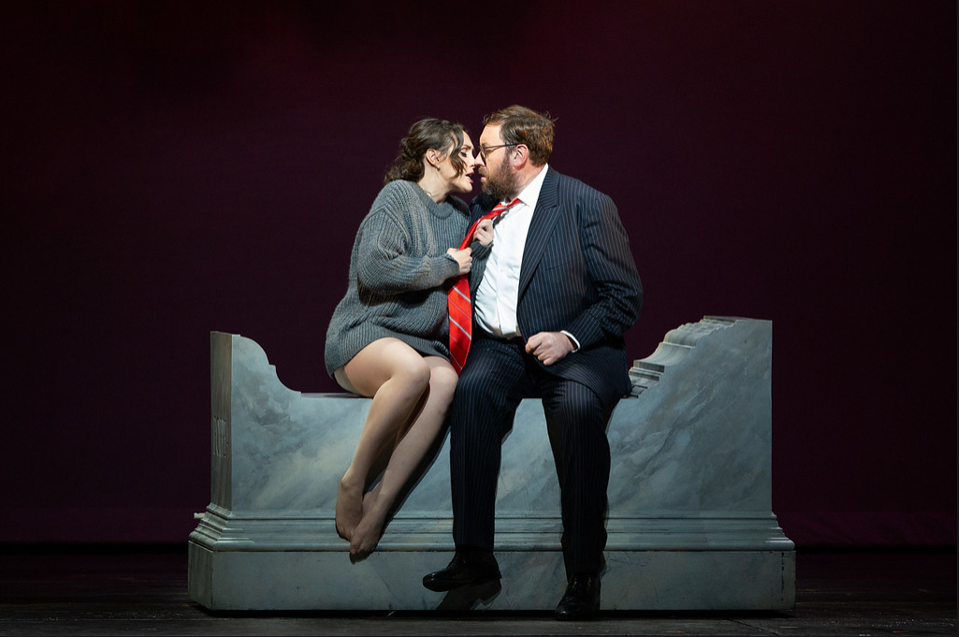
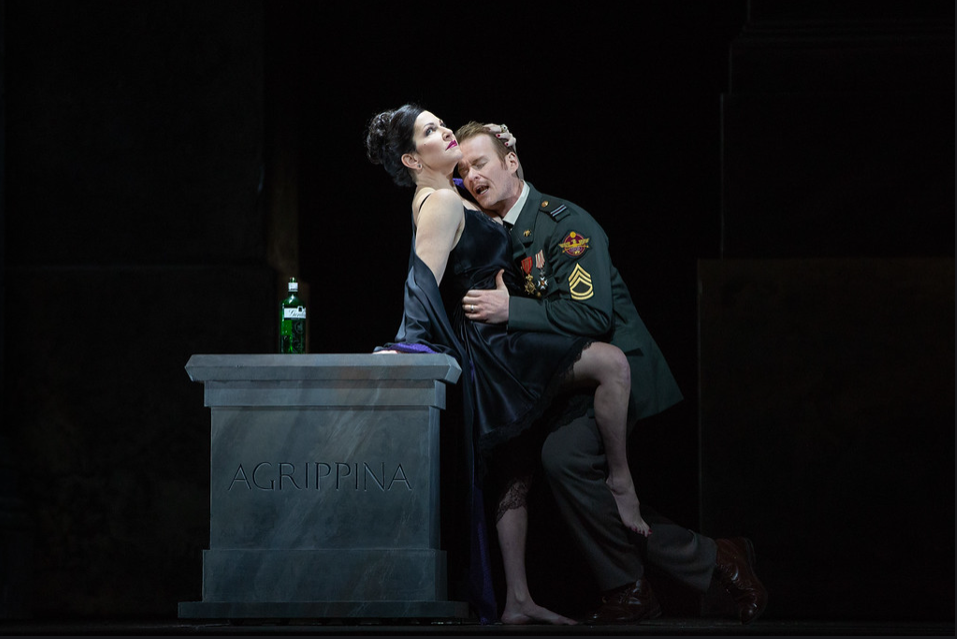
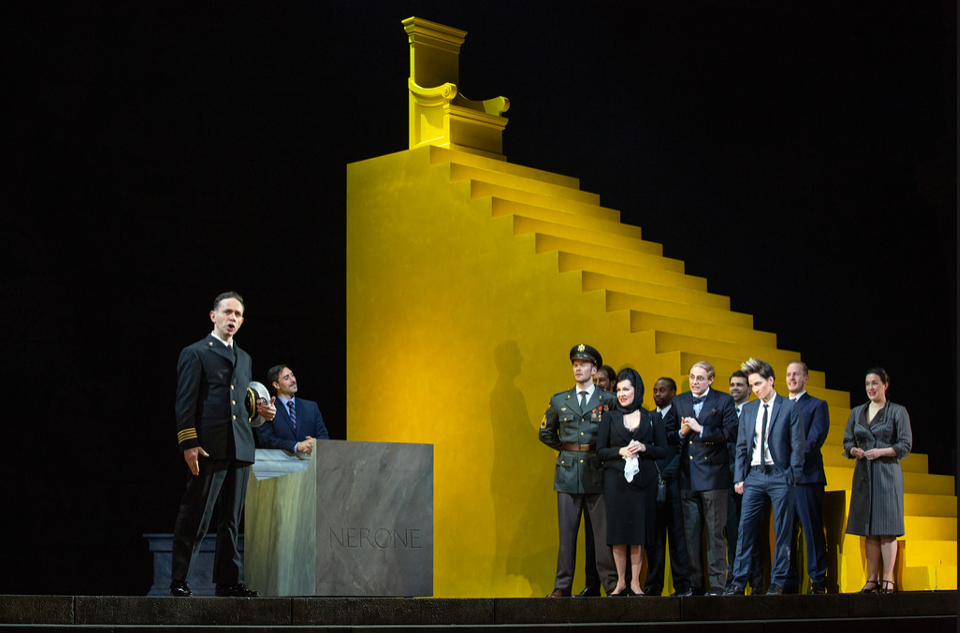

{ 5 comments… read them below or add one }
Awesome performance. I would love to see it again next season. Please!
I saw this opera at a movie theater here in Spokane, WA (thank you thank you thank you !!!) I thought this opera was hilarious!! Such good acting with all the singers; I just about died at how funny these people are at acting as well as singing. I do not know enough about opera singing to criticize it, but I do know over-the-top acting and slapstick to tell you when I see greatness. Di Donato’s facial expressions and Lindsey’s slapstick and Rae’s comedy timing and slapstick, and ALL the guys!!Especially the guy with the comb-over !! The bar scene was a scream!! Even a touch of Elvis. My audience did not laugh out loud, and neither did the Met audience, but maybe we did not think or did not know that it would be okay to laugh. However we did know to applaud. Thanks for a great time at the Opera!!
For me this was the most enjoyable Met HD Live telecast of the last few seasons and where comedy is concerned, the best since Hansel and Gretel of many seasons ago. I think it may have been too bawdy for the audience in the theater where I attended it and I often felt I was alone in laughing and applauding. I assume the sexual humor was a new addition by the current director…
I found the slapstick humor to be detracting from the beauty of Handel’s music.
One week later and I’m still laughing.
1. The tragedy of this opera is not lost on me. In the end, Agrippina looked to me like she was going to cry. Was all this manipulation worth it?
2. How can you be disappointed in the singing? I was so impressed with all the solo arias.
3. This certainly is not the opera of my ancestors (I’m age 70). Did Handel just roll over in his grave, or did he laugh as often as I did?
4. Agrippina’s two conspirators- Harvey Korman and Tim Conway resurrected.
5. You gotta see that bar scene in act 2.! All that action!! Bravo to Poppita’s comedy and singing!!
That’s it for me. Go see the darn thing!!